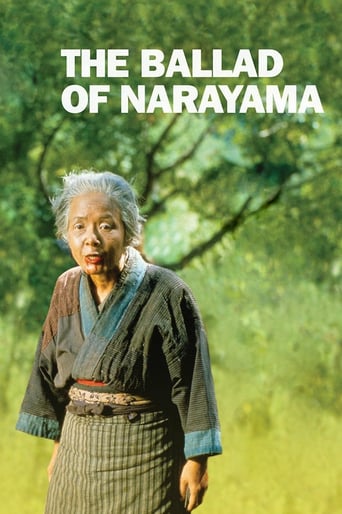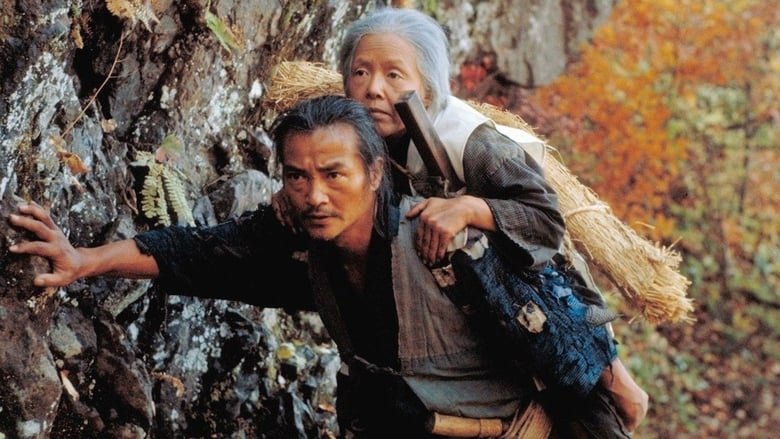The Ballad of Narayama (1983)
In a small village in a valley everyone who reaches the age of 70 must leave the village and go to a certain mountain top to die. If anyone should refuse they would disgrace their family. Old Orin is 69. This winter it is her turn to go to the mountain. But first she must make sure that her eldest son Tatsuhei finds a wife.
Watch Trailer
Cast


Reviews
best movie i've ever seen.
I like movies that are aware of what they are selling... without [any] greater aspirations than to make people laugh and that's it.
Pretty good movie overall. First half was nothing special but it got better as it went along.
The plot isn't so bad, but the pace of storytelling is too slow which makes people bored. Certain moments are so obvious and unnecessary for the main plot. I would've fast-forwarded those moments if it was an online streaming. The ending looks like implying a sequel, not sure if this movie will get one
This is actually an extraordinarily beautiful film, if one has even the remotest understanding of Japanese culture around that time period. The harshness of life in Japan made the sort of society in which people went to "be with their loved-ones" and "be with the God of the Mountain" at age 70 completely necessary. The focus of the film is the struggle for survival, and more than that, prospering, in the harsh environment of c. XIX Tohoku. The exploration of this topic takes the viewer into a study of survival through strict rules, and prospering through sexual relationships. The scenes of sexual intercourse serve to portray that even in sexual situations, the Japanese as a people have never viewed nature and animals as separate from ourselves.
With beautiful photography and sensitive, elegant acting, this is perhaps the best exploration of what it means to be human. As usual, Shohei Imamura draws direct parallels between the basic drives & instincts (hunger, greed, lust, anger, envy) of people and other animals. I have friends who have walked out of this movie because they found these comparisons so depressing when shown in the desperately poor rural Japan during the late 19th century. What they missed was the core intelligence, caring, self sacrifice, clear thinking and love that enabled that community, and by extension the human race, to survive such difficult times.This sympathetic portrayal of a family in a rural village is the best of ten films I have seen from Imamura, with an epic scale of Akira Kurosawa and all of the subtlety of Ozu.
This is one of the most beautiful and moving motion pictures I have ever seen. The extreme hardships faced by the people in this story are presented frankly and unsentimentally. The cinematography is absolutely exquisite, particularly the last 10-15 minutes. Although the film never gives in to or panders to sentimentality (sentimentality, Imamura?), the end is really a tear-jerker. As much as I hate to make lists of my "favorite things", this movie would definitely rate among my top ten of all times. Do yourself a favor and see this movie!
if you haven't watch Kinoshita's version (in 1958), go and see > it. It's really a jewel, more poetical and original, even more strange, than this one. You won't be disappointed.







